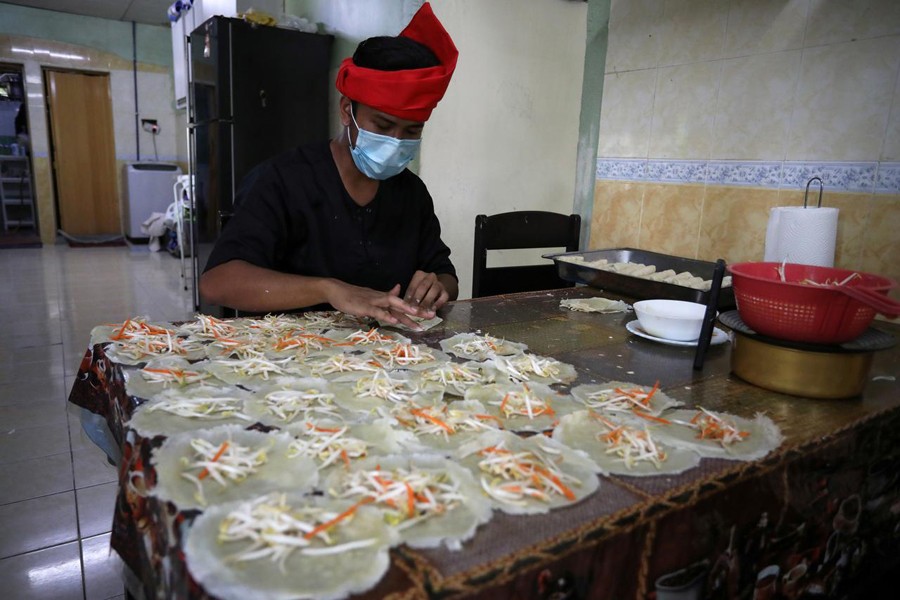
Published :
Updated :

For 15 years, Siti Zabedah Abdul Wahab’s family food business has opened for one month a year, selling murtabak, a pan-fried bread stuffed with meat, at Malaysia’s popular Ramadan bazaars.
But this year, Murtabak Mami Murtabak Sultan started taking orders on Whatsapp and Facebook weeks before the Muslim fasting month began on April 23, as authorities across Southeast Asia called off Ramadan bazaars amid the coronavirus pandemic.
“This is the first time we are selling online, so we wanted to start early to make sure our customers can find us,” 38-year-old Siti Zabedah told Reuters news agency.
Ramadan is traditionally a lucrative time for food vendors in Muslim-majority countries, with more people going out for late-night meals after breaking their fast at sunset.
But the global virus outbreak, with more than 3 million people infected, has led to widespread curbs.
Malaysian authorities have imposed a partial lockdown until mid-May and called off Ramadan bazaars. They are usually attended by packed crowds and feature hundreds of stalls selling food for iftar, or the fast-breaking meal.
The movement curbs have forced thousands of street hawkers and vendors to embrace digital platforms, mirroring a shift in neighbouring Indonesia, where roadside businesses enjoy a sizeable online presence.
“In Indonesia, you can order pretty much anything you want on an app,” said Rosli Sulaiman, president of the Malaysian Malay Hawkers and Small Traders Association.
“Here we have to do a bit more educating as most vendors are used to just being on the street. Going online or dealing with cashless transactions will be something new for them.”
Malaysian hawkers have been badly hit by the curbs, with estimated losses of about 50 million ringgit ($11.5 million) for some 100,000 traders.
To soften the impact, several companies have developed e-bazaar platforms to help Ramadan traders partner with delivery companies and reach more customers online.
“It’s going to be a steep learning curve but... we have no choice,” Rosli said.
Many small food businesses, however, prefer marketing directly to customers on social media as they do not earn enough profit to share with delivery firms.
Dozens of Ramadan bazaar groups have popped up on Facebook, where sellers can offer cash-on-delivery services to customers closest to them.
Virtual bazaars have also been set up in Singapore, which cancelled Ramadan markets last month.
The pandemic has heavily impacted observance of Ramadan, traditionally a month when Muslims spend most of their time with families and attend nightly mass prayers at mosques.


 For all latest news, follow The Financial Express Google News channel.
For all latest news, follow The Financial Express Google News channel.